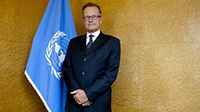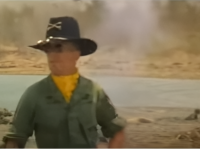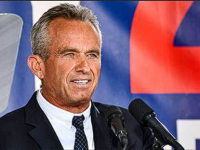“Rebranding” the United Nations Office in Geneva.

United Nations. A serious effort is being made by the Acting Director-General of the United Nations Office in Geneva (UNOG) to “rebrand” his organization. Michael Møller, a Danish diplomat with extensive experience in the United Nations system, is energetically trying to give new life and a new image through a host of activities and presentations.
He is to be commended. Not only does the historic Palais des Nations need a serious face-lift if not major cosmetic surgery including implants and replacements, but many of the organizations associated with the UN in Geneva, such as the Conference on Disarmament and the World Trade Organization’s Doha Round, could use some massive adrenalin (testosterone?) injections. Add to that the growing role of NGO’s, the private sector and competition from other cities for hosting conferences and organizations, and one can see that Mr. Møller has a lot on his plate. And he is officially only an Acting Director who says he is not actively competing for the regular position!
Beyond “rebranding” lies a more fundamental question. Yes the United Nations system was founded after World War II and the world has changed since then. Yes, the Security Council is often deadlocked because of the veto power of the five permanent members. Yes, the organization is a huge bureaucracy that seems wrapped up in endless debates and resolutions with little meaning. All of the above are true, but it must be highlighted that the budget of the entire system pales when compared to international military budgets. According to 2012 statistics, the annual estimated spending of the United Nations and all its agencies was $30 billion, less than 3% of the world’s annual military spending and certainly less than the $700 billion of the United States military.
No, my point is not to defend the entire United Nations system. My point is that the “rebranding” of UNOG is taking place at a historical moment when multilateralism is in trouble. The United Nations, like the League of Nations, began just after a world war. Faced with the horrors that had taken place, world leaders decided that there must be better ways to settle disputes than having millions die for hundreds of meters on the hills of Verdun or under the nuclear clouds of Hiroshima and Nagasaki. The League of Nations and United Nations were established on the principles of negotiation and compromise.
In today’s world of smartphone “selfies,” those principles seem passé. When I recently asked people in Kiev what their negotiating position would be with the Russians, they answered: “The return of Crimea, membership in the EU and NATO, money from the IMF and cheap gas”. When I then asked what was their fall-back position, as in any negotiation, they had no answer. They had “their position,” with no possibility for negotiation, compromise or fall-back.
Michael Møller is a dedicated international civil servant, like so many of his colleagues. He believes in negotiation and compromise and the peaceful settlement of disputes through the rule of law and arbitration. But the resignation of Lakhdar Brahimi as the UN and Arab League Special Envoy for Syria, following the resignation of Kofi Annan from the same post, and the continued horrors in Syria among other places, gives room for hesitation about how far “rebranding” can go.
The Geneva talks on Syria, like the initiative for Israel and Palestine, appear futile. In a world that seems determined to refuse compromise and conciliation “rebranding” risks the same. What seems to be needed is more than cosmetic surgery, perhaps an international coronary transplant for a real change of heart.
Daniel Warner










